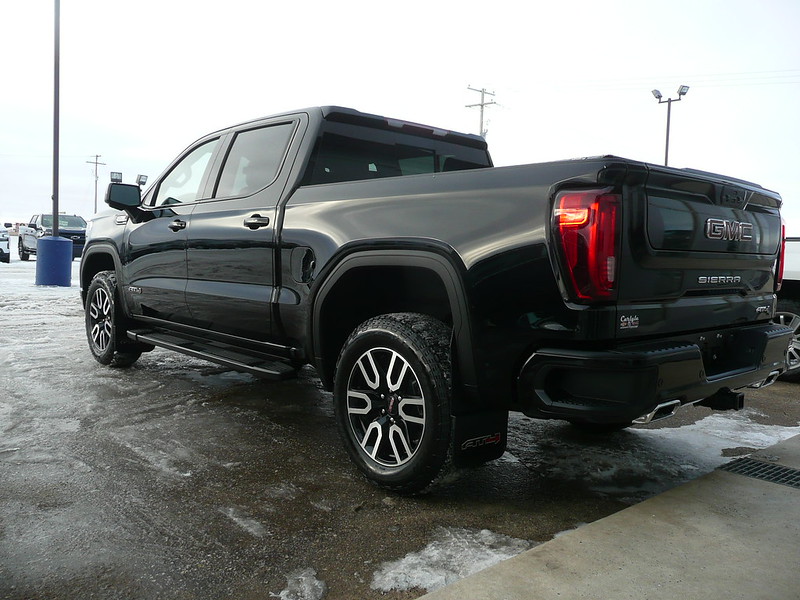The Evolution and Impact of Pickup Trucks in Modern Automotive Culture
Pickup trucks have become an integral part of the automotive landscape, evolving from humble workhorses to versatile vehicles that cater to a wide range of needs and preferences. These robust machines have garnered a dedicated following, with models like the Chevrolet Silverado leading the charge in popularity and innovation. As we delve into the world of pickup trucks, we'll explore their history, features, and the reasons behind their enduring appeal in today's automotive market.

Manufacturers began incorporating more comfort features, improved ride quality, and enhanced styling to appeal to a broader audience. This transformation saw pickup trucks transition from purely work-oriented vehicles to family-friendly options that could handle both daily commutes and weekend adventures. The addition of crew cabs, luxury interiors, and advanced technology features has further blurred the line between utility and comfort, making pickup trucks attractive to a diverse range of buyers.
What are the key features that define modern pickup trucks like the Chevrolet Silverado?
Modern pickup trucks, exemplified by models like the Chevrolet Silverado, boast an impressive array of features that cater to both work and leisure. Some key defining characteristics include:
-
Powerful and efficient engines: Modern trucks offer a range of engine options, from fuel-efficient V6s to robust V8s and even diesel powertrains.
-
Advanced towing capabilities: Many pickup trucks now come with integrated trailer brake controllers, backup cameras with hitch guidance, and advanced stability control systems.
-
Versatile bed configurations: Adjustable tie-downs, built-in steps, and multi-function tailgates enhance the utility of the truck bed.
-
Luxurious interiors: High-end materials, spacious cabins, and advanced infotainment systems rival those found in luxury SUVs.
-
Safety technologies: Features like automatic emergency braking, lane departure warnings, and adaptive cruise control are becoming standard in many pickup trucks.
-
Off-road capabilities: Many trucks offer specialized off-road packages with features like skid plates, all-terrain tires, and advanced four-wheel-drive systems.
These features have transformed pickup trucks from simple workhorses into versatile vehicles that can handle a wide range of tasks and environments.
Why has the pickup truck segment continued to grow in popularity?
The continued growth in popularity of pickup trucks can be attributed to several factors:
-
Versatility: Pickup trucks offer a unique combination of passenger comfort, cargo capacity, and towing capabilities, making them suitable for various lifestyles.
-
Improved fuel efficiency: Advancements in engine technology have made modern pickup trucks more fuel-efficient than their predecessors, addressing a common concern among potential buyers.
-
Status symbol: In many regions, particularly in North America, pickup trucks have become associated with a rugged, independent lifestyle, appealing to those who want to project that image.
-
Technological advancements: The integration of advanced safety features, connectivity options, and driver-assist technologies has made pickup trucks more appealing to tech-savvy consumers.
-
Customization options: The vast aftermarket support for pickup trucks allows owners to personalize their vehicles to suit their specific needs and preferences.
-
Resale value: Pickup trucks often retain their value better than many other vehicle types, making them an attractive investment for buyers.
These factors have contributed to the pickup truck segment’s resilience and growth, even as other automotive segments have faced challenges.
How do pickup trucks compare in terms of features and pricing?
When comparing pickup trucks, it’s essential to consider various factors such as size, capabilities, and features. Here’s a comparison of some popular pickup truck models:
| Model | Starting Price (USD) | Max Towing Capacity (lbs) | Fuel Economy (City/Hwy MPG) | Key Features |
|---|---|---|---|---|
| Chevrolet Silverado 1500 | $33,800 | 13,300 | 23/31 | Multi-Flex Tailgate, Available Diesel Engine |
| Ford F-150 | $31,520 | 14,000 | 25/26 | Pro Power Onboard, Hybrid Powertrain Option |
| Ram 1500 | $35,900 | 12,750 | 22/32 | RamBox Cargo Management, Air Suspension |
| Toyota Tundra | $36,965 | 12,000 | 18/24 | Standard V6 Hybrid Powertrain, 14-inch Touchscreen |
| GMC Sierra 1500 | $35,400 | 13,200 | 23/30 | MultiPro Tailgate, CarbonPro Bed |
Prices, rates, or cost estimates mentioned in this article are based on the latest available information but may change over time. Independent research is advised before making financial decisions.
As shown in the table, pickup trucks offer a wide range of features and capabilities at various price points. The Chevrolet Silverado, for example, provides a competitive balance of towing capacity and fuel economy, while others like the Ford F-150 offer unique features such as onboard power generation. When choosing a pickup truck, it’s crucial to consider your specific needs, budget, and desired features to find the best fit.
What does the future hold for pickup trucks in the automotive industry?
The future of pickup trucks in the automotive industry looks promising, with several trends shaping their evolution:
-
Electrification: Many manufacturers are developing all-electric pickup trucks, promising zero emissions without compromising on power or capability.
-
Advanced driver assistance systems: Future pickup trucks are likely to incorporate more autonomous driving features, enhancing safety and convenience.
-
Lightweight materials: The use of advanced materials like aluminum and carbon fiber is expected to increase, improving fuel efficiency and performance.
-
Connected technologies: Integration with smart home systems, advanced telematics, and over-the-air updates will become more prevalent.
-
Alternative fuels: In addition to electric options, hydrogen fuel cell technology may play a role in future pickup truck powertrains.
As pickup trucks continue to evolve, they are likely to maintain their position as versatile and popular vehicles, adapting to changing consumer preferences and environmental regulations while retaining their core functionality and appeal.




